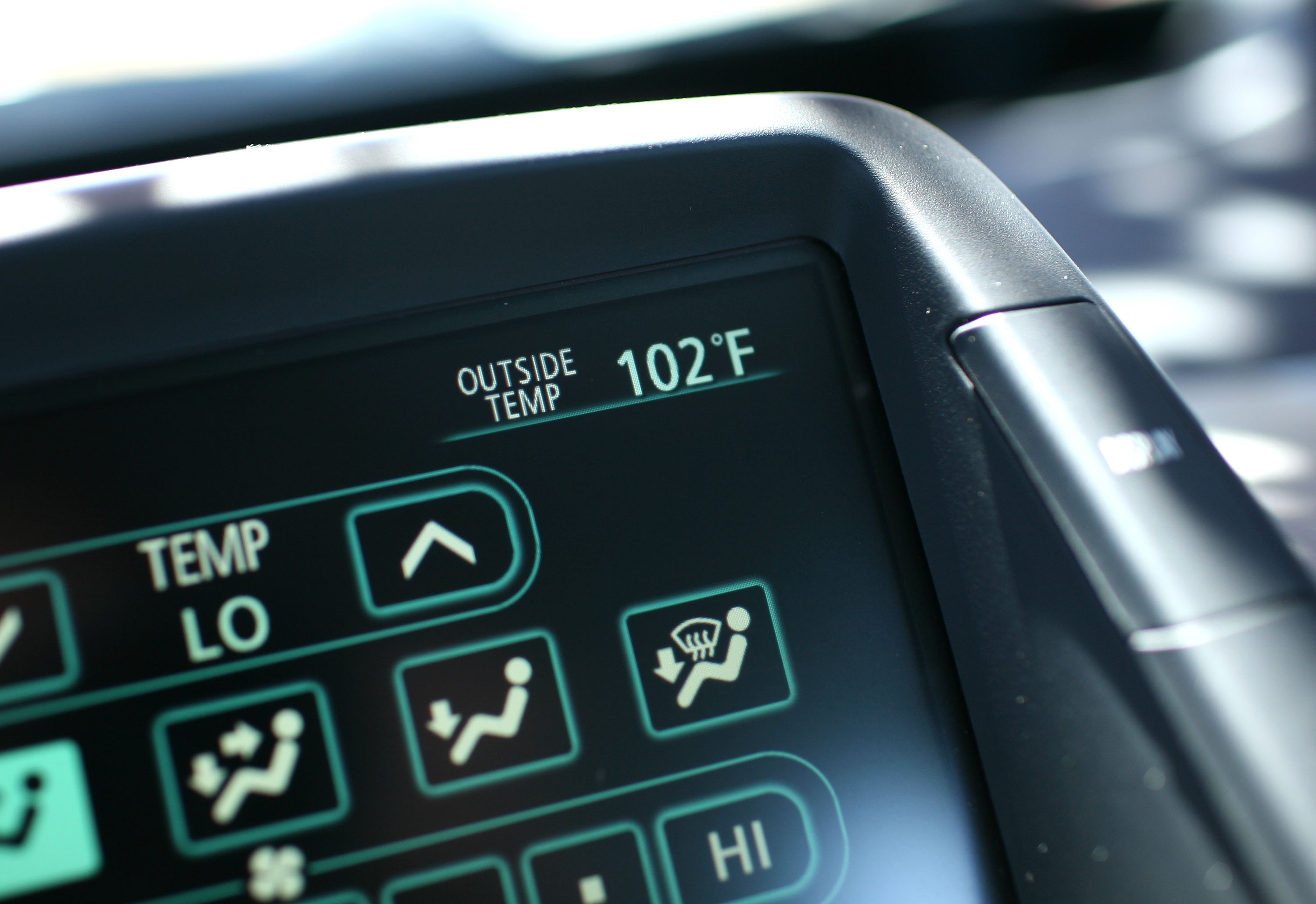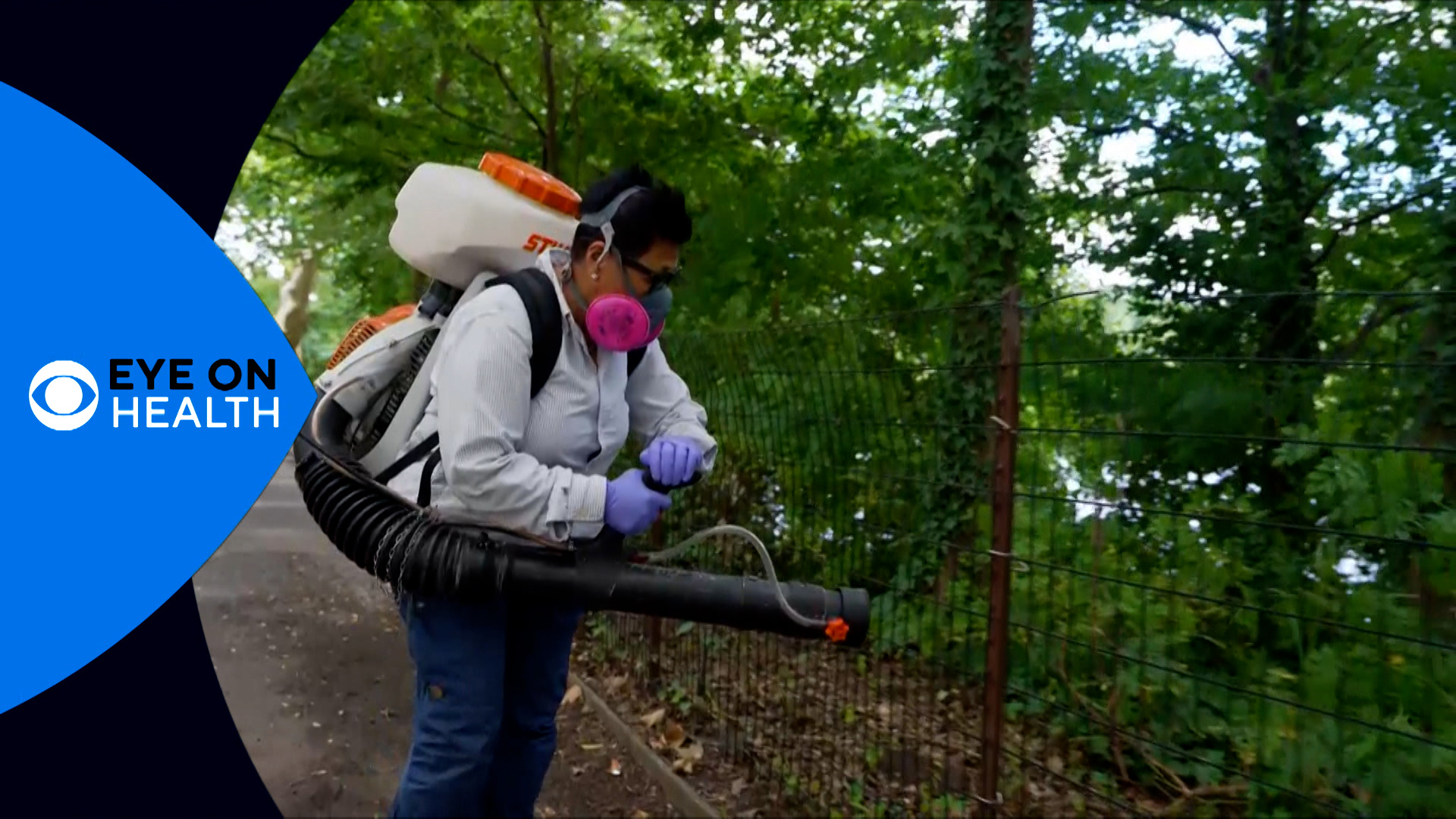It's a parent's worst nightmare: a child left behind in a hot car. In the United States, that nightmare is a reality for parents of more than 700 children who have died being left in a hot vehicle since 1998.
Each year, dozens of children die from high temperatures in vehicles, particularly in the summer months when temperatures can reach triple digits in some areas.
A meteorology expert from San Jose State University, Jan Null, has tracked hot car deaths across the United States since 2001. His research depicts the states that have seen the most child heat-related car deaths throughout the years.
Null who is often approached by savvy entrepreneurs does not see his work as a means to an end, but rather a learning tool.
"I’m trying to provide a tool box for people to use to solve this (hot car deaths issue)," said Null. "I don’t see myself as the person to have the answer."
Here are the states with the highest heat-related child deaths, first with the highest total deaths, followed by the highest rate.
Deaths in the past year
So far in 2017, 35 children have died from being left alone in hot vehicles. In 2016 that number was 39. The year-to-year average sits at 37 deaths.
Of the 35 deaths, 27 are within the last four months. Some areas have had multiple fatalities just days apart.
In July in the area of Phoenix, Ariz., two children younger than 1 died just a day apart. The temperature on both days was in the triple digits.
The month of July proved to be the deadliest month in nearly a decade with 11 child fatalities. The two deaths in Phoenix capped off a month with the most hot car deaths since 2008. The highest number on record was 16 in July of 1999. That number is also the most fatal month in history since Null began logging deaths.
Top overall deaths: Texas
In Texas, the second most populous state, 114 children have died between 1998 and today. This makes it the state with the highest death toll since 2001. Texas is one of 19 states in the U.S. to outlaw leaving children unattended in a vehicle.
In the areas of Weatherford and Kerville, two sets of children passed away on the same day nearly a week apart. One pair were siblings.
Juliet and Cavanaugh Ramirez, the siblings, died after being locked in a car for several hours as punishment for misbehavior, police say. Their mother, Cynthia Marie Randolph allegedly believed that her act would teach them "a lesson," according to police officials.
The temperature on that day clocked in at 96 degrees which is within range for a normal summer month in Texas.
Randolph has since been charged with two first-degree felony counts of injury to a child causing serious bodily injury.
Florida
The state of Florida has the second highest total number with 82 deaths. So far in 2017, six children have died after being left in hot vehicles. Florida is the third most populous state.
Much like Texas, Florida also has a law that makes it illegal to leave a child in a hot vehicle unsupervised.
However, the period in which parents or caregivers can be charged must be past 15 minutes. In the summer months when temperatures in highly populated areas such as Orlando and Miami can hover in the 90-degree area according to National Weather Service data, 15 minutes is enough time for a small child to potentially die if not receive great bodily injury.
That law may change, as some lawmakers have expressed concern about the 15-minute grace period.
California
California has the third highest total with 45 deaths since the tracking began. The state has yet to experience any fatalities in 2017, but it is the most populous state in the U.S.
Like Texas and Florida, California also has a law to protect children from being left behind in hot cars.
The southern regions of California routinely experience triple digit heat throughout the summer months. In the Palm Springs area, the temperature rose above 110 degrees 24 times in 2016, according to Desert Sun records. It has risen over 110 degrees over 19 times so far this year.
In one instance the temperature reached 109 degrees by early morning and continued to rise throughout the day. The record temperature stands at 123 degrees, which last occurred in 1995. Still, the area is routinely able to reach 122 degrees.
Deaths Per Capita
Null not only charts the total number of deaths, but deaths per capita – or deaths per one million – as well. Accounting for this set of data allows for a big picture view of the issue in the U.S. For example, while California stands as the state with the third-highest amount of deaths, when looking at deaths per capita, it has 4.7 per one million, making it one of the 'better' states in terms of per capita deaths.
While Florida and Texas rank high in deaths per capita with 17.1 and 14.1 deaths respectively, other states are more likely to have child heat-related deaths compared to the overall population numbers. Arkansas, Mississippi, and Louisiana stand as the states with the highest deaths per capita.
Most prevalent: Mississippi
With 22 deaths per capita from 1998-2016, Mississippi stands as the state with the highest amount of deaths. With a population of just under three million people according to U.S. Census data, Mississippi regularly faces hot weather and high humidity.
The state almost experienced its first death of 2017 in May when a man was charged with felony child abuse after purposefully locking a disabled child in a vehicle to punish the child's mother.
Witnesses saw Brandon Windham, 31, roll the vehicle's windows up and walk away. The child was rescued by emergency officials after spending between 10 and 20 minutes in the vehicle.
Mississippi is among 31 states that do not have specific laws regarding children being left unattended.
Arkansas
Arkansas is the state with the second-highest per capita deaths with 21 per million. Null noted that because of its close numerical proximity to Mississippi along with its similar population total, there is a chance that just one death can flip Arkansas to first and bump Mississippi to second in deaths per capita.
Much like Mississippi, Arkansas does not have a law regarding children left behind unattended in vehicles. However, unlike Mississippi, Arkansas has experienced a death in June 2017 when a 5-year-old passed away on a day with a heat index of 88 degrees.
The child, Christopher Gardner, was supposed to arrive at a daycare facility dedicated to children needing occupational therapy services. Instead, he was left behind in the facility's van and found several hours later.
Four female employees directly involved in the incident were fired and have since been charged with manslaughter.
Louisiana
Louisiana rounds out the worst three states with 19.9 deaths per capita, just .2 deaths ahead of Oklahoma.
Of the top three states with the highest deaths per capita, Louisiana is the only one with a law regarding children left behind in vehicles.
Much like Florida, a child can be left unattended in a vehicle for a set period of time. In Louisiana that period of time is 10 minutes. An excess of 10 minutes allows law enforcement to remove the child from the vehicle.
Like other southern states, Louisiana carries with it high temperatures coupled with extreme humidity.
A vehicle's glass transparency allows for the sun's rays to heat up the inside essentially creating a vacuum of heat. Within minutes a car that was just being cooled can experience a spike in temperature.
Null estimates that in a 10-minute time span a vehicle can experience nearly 19 degrees in temperature change. Within an hour a vehicle can heat up by more than 50 degrees.
The leading cause of death is a child being "forgotten" with over 50 percent of deaths being attributed to absentmindedness. Unattended children playing in a vehicle accounted for 28 percent of deaths. 32 percent of those who died after being left in a vehicle were less than one year in age.
Due to the multitude of deaths and injuries sustained by airbags it is a requirement that parents sit children in the rear of the car. While the requirement prevents injury, children are more likely to be forgotten when they are out of sight.
A child's body composition is much different than an adult's. A child's body temperature can rise three to five times faster than an adult. This leads to an increased risk of hyperthermia even when vehicles aren't directly underneath the sun.
It doesn't need to be summer for a child to die after being left in a vehicle. The summer heat increases the likelihood of death or injury, but deaths happen in other seasons. Two deaths in 2017 occurred in the month of February.
Natural cooling methods such as sweating shut down when the body reaches 104 degrees. Death occurs at 107 degrees.


